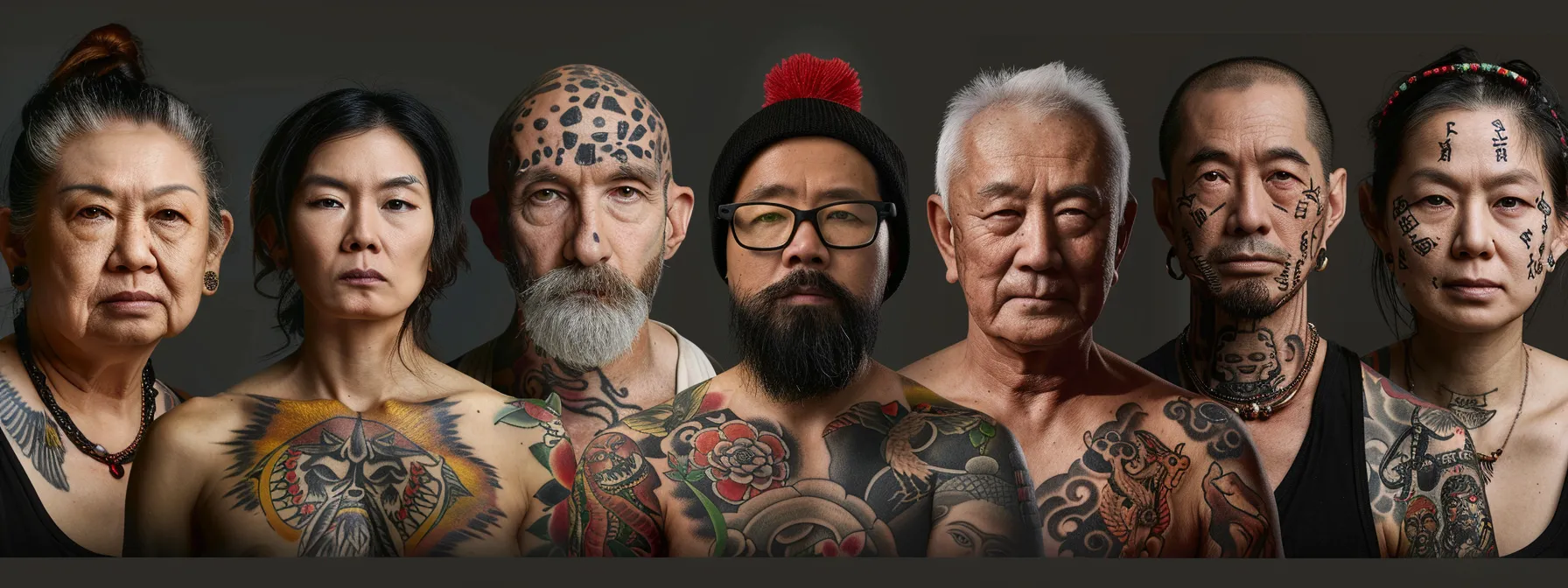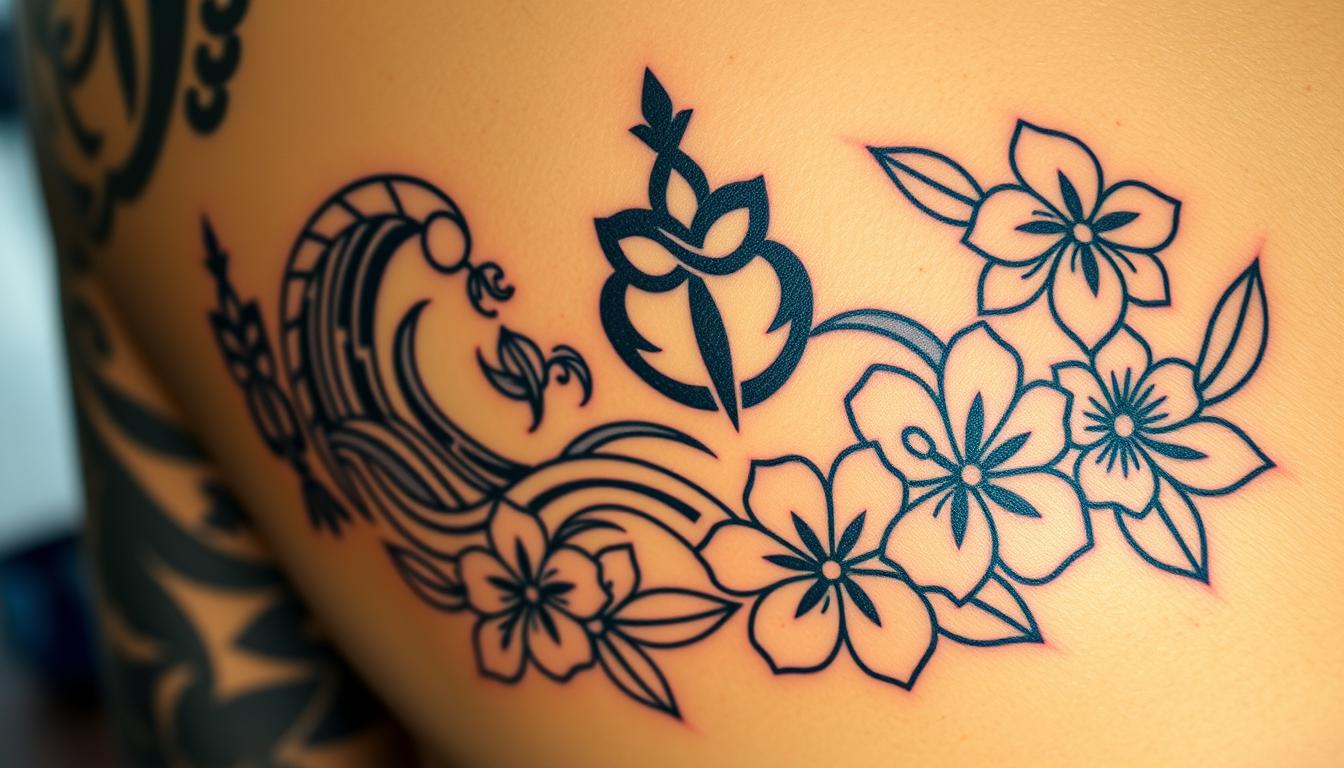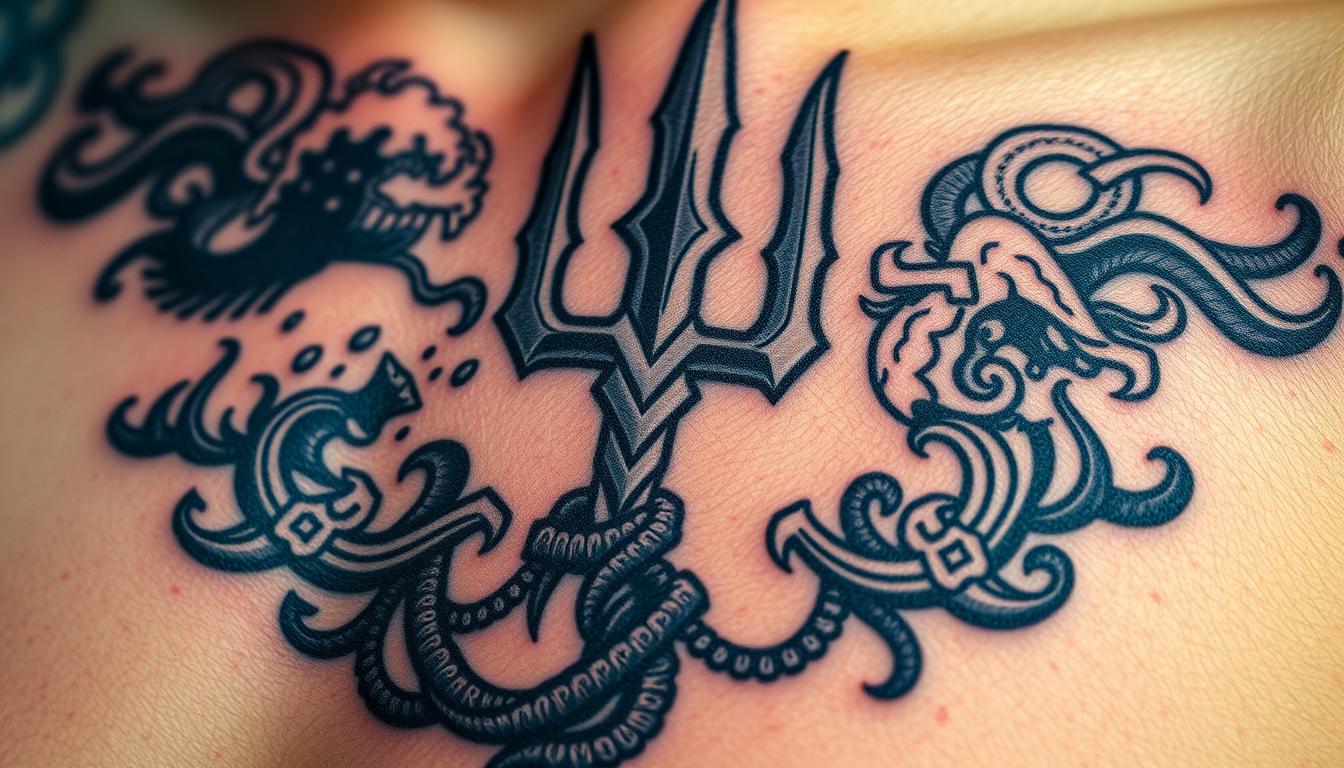Are you considering getting your first tattoo but unsure about the legal age requirements? Understanding tattoo age laws is crucial for avoiding legal issues and potential health risks. This article will cover global age restrictions, factors influencing these laws, and exceptions like parental consent. We’ll also discuss the consequences of underage tattooing and how to prepare for your first tattoo legally and safely. By the end, you’ll know the importance of following age requirements and how to protect yourself from infections like hepatitis, which can occur from improper tattooing practices.
Key Takeaways
- Tattoo age laws vary globally, with most countries setting 18 as the minimum age
- Parental consent may allow minors to get tattoos in some jurisdictions, but restrictions still apply
- Underage tattooing poses health risks and legal consequences for both minors and tattoo artists
- Researching reputable studios, verifying age requirements, and understanding aftercare are crucial for first-time tattoos
- Alternatives like temporary tattoos and henna designs offer safe options for underage individuals interested in body art
Understanding Legal Age Requirements for Tattoos Around the World

Legal age requirements for tattoos vary globally, reflecting cultural attitudes and safety concerns. This section explores minimum age laws in the United States, European regulations, Australasian standards, Asian cultural significance, and international differences. Understanding these laws helps ensure responsible tattooing practices, considering parental consent, hygiene standards, and the artistry of ink and pigment application.
Minimum Age Laws in the United States
In the United States, tattoo age restrictions vary by state, with most requiring individuals to be 18 or older to get inked without parental consent. Some states allow minors to receive tattoos with parental permission, while others strictly prohibit tattooing anyone under 18. These laws aim to protect young people from potential health risks, such as skin infections or diseases that can result from improper sterilization techniques. Additionally, age restrictions acknowledge the permanence of tattoos and the potential for regret, as younger individuals may not fully comprehend the long-term implications of body art, including possible pain during the process and the impact on future career prospects.
Tattoo Age Regulations in Europe
European tattoo regulations vary across countries, with most setting the minimum age at 18. Some nations allow minors to get tattoos with parental consent, while others enforce strict age limits. Tattoo artists in Europe must adhere to stringent hygiene standards to prevent the spread of infections like hepatitis B. Many countries also regulate the use of certain pigments and require tattoo artists to undergo specific training. These laws aim to protect both clients and artists, ensuring safe practices in an industry that involves potential health risks due to the nature of creating a wound on the body.
Legal Age for Tattoos in Australia and New Zealand
In Australia and New Zealand, the legal age for tattoos is generally 18 years old. Some states in Australia allow minors to get tattoos with parental consent, while others strictly prohibit it. Tattoo artists in these countries must complete an apprenticeship and follow strict hygiene protocols to prevent the transmission of blood-borne diseases. They also need to use approved tattoo ink and maintain clean workspaces to ensure client safety.
Tattoo Laws in Asia and Their Cultural Significance
Tattoo laws in Asia vary widely, reflecting diverse cultural attitudes and historical contexts. In Japan, tattoos remain controversial due to their association with organized crime, leading to age restrictions and limited access to public spaces for tattooed individuals. South Korea enforces strict regulations, requiring tattoo artists to be licensed medical professionals. In contrast, countries like Thailand and Indonesia have more relaxed attitudes, though health concerns related to pathogens and allergies have prompted increased regulation. Many Asian countries now require tattoo artists to use sterile equipment, apply protective lotions, and provide information about tattoo removal options to ensure client safety and informed decision-making.
How International Laws Differ on Tattoo Age Restrictions
International tattoo age restrictions reflect diverse cultural, legal, and health considerations. While many countries set the minimum age at 18, some allow tattoos for minors with parental consent. Certain nations require tattoo artists to have medical licenses or undergo specific training to ensure proper health and safety practices. Additionally, regulations may extend to permanent makeup procedures and laser removal treatments. Some countries mandate the use of approved inks and sunscreens to protect clients’ skin health. These laws aim to balance individual expression with public safety concerns, recognizing the permanence of tattoos and potential health risks associated with the practice.
Factors That Influence Tattoo Age Laws

Tattoo age laws are influenced by various factors, including health and safety considerations, cultural norms, government regulations, industry standards, and historical changes. These elements shape the legal landscape for body modification practices, addressing concerns about bacteria, skin care, and proper use of tattoo machines. Understanding these factors is crucial for both aspiring tattoo recipients and professionals in the industry.
Health and Safety Considerations
Health and safety considerations play a crucial role in shaping tattoo age laws. These regulations aim to protect individuals from potential risks associated with the tattooing process, including infections, allergic reactions, and long-term skin damage. Lawmakers consider the physical and emotional maturity required to make informed decisions about permanent body modifications, as well as the ability to properly care for a tattoo during the healing process. Additionally, age restrictions help ensure that tattoo recipients can understand and follow aftercare instructions, reducing the likelihood of complications.
Cultural and Social Norms Affecting Age Limits
Cultural and social norms significantly influence tattoo age limits across different societies. In some cultures, tattoos are viewed as rites of passage, leading to more lenient age restrictions. Conversely, societies that associate tattoos with rebellion or criminality tend to impose stricter age limits. These norms also shape public perception of tattoos, affecting how lawmakers approach age-related regulations. The following factors contribute to the cultural and social impact on tattoo age limits:
- Religious beliefs and practices
- Historical significance of tattoos in specific cultures
- Societal attitudes towards body modification
- Generational differences in tattoo acceptance
- Media representation of tattoos and tattooed individuals
The Role of Government Regulations and Oversight
Government regulations and oversight play a crucial role in shaping tattoo age laws. Legislators enact policies to protect public health, ensure ethical practices, and address societal concerns. These regulations often mandate licensing requirements for tattoo artists, establish health and safety standards for tattoo parlors, and set age restrictions for receiving tattoos. By implementing and enforcing these laws, governments aim to minimize health risks associated with tattooing and protect minors from making potentially regrettable decisions about permanent body modifications.
Impact of Tattoo Industry Standards on Age Requirements
Tattoo industry standards significantly influence age requirements for getting inked. Professional organizations and experienced tattoo artists often advocate for stricter age limits to ensure clients are mature enough to make informed decisions about permanent body modifications. These standards also emphasize the importance of proper aftercare, which younger individuals may struggle to maintain. By setting higher age requirements, the industry aims to reduce the likelihood of regret and complications, ultimately enhancing the reputation and safety of tattooing as a whole.
Historical Changes in Legal Age for Tattoos
Tattoo age laws have evolved significantly over time, reflecting changing societal attitudes and health concerns. In the past, many countries lacked specific regulations, allowing younger individuals to get tattoos without restrictions. However, as awareness of potential health risks and the permanence of tattoos grew, governments began implementing stricter age requirements. This shift occurred alongside the professionalization of the tattoo industry, with many countries now requiring tattoo artists to be licensed and adhere to strict hygiene standards.
Parental Consent and Exceptions to Age Restrictions

Parental consent and exceptions to age restrictions play a crucial role in tattoo regulations for minors. This section explores how parental approval works, which regions allow underage tattoos with guardian consent, legal implications for parents, emancipated minor status, and special circumstances like medical tattooing. Understanding these nuances is essential for minors considering tattoos and their guardians.
How Parental Consent Works for Underage Tattoos
Parental consent for underage tattoos typically involves a legal guardian accompanying the minor to the tattoo studio and signing a consent form. This process requires the parent or guardian to provide identification and proof of relationship to the minor. Some jurisdictions may also mandate a waiting period between consent and the actual tattooing procedure. Tattoo artists must carefully verify all documentation to ensure compliance with local laws and protect themselves from potential legal issues:
| Requirement | Description |
|---|---|
| Guardian presence | Parent or legal guardian must accompany minor |
| Consent form | Guardian signs official consent document |
| Identification | Proof of guardian’s identity and relationship to minor |
| Waiting period | Possible time between consent and procedure (varies by location) |
States and Countries Allowing Tattoos With Guardian Approval
Several states and countries allow minors to get tattoos with guardian approval, recognizing the importance of parental involvement in such decisions. These jurisdictions typically require the presence of a parent or legal guardian during the tattooing process, along with signed consent forms and proof of relationship. Some areas that permit underage tattoos with guardian approval include:
- Nevada, United States
- Ohio, United States
- Texas, United States
- United Kingdom (with some restrictions)
- Australia (varies by state)
- New Zealand (with additional requirements)
Legal Implications for Parents and Guardians
Parents and guardians who consent to underage tattoos face potential legal implications. They may be held liable for any complications or health issues arising from the procedure. Additionally, if the consent process is found to be improper or coerced, parents could face charges of child endangerment or neglect. Some jurisdictions also impose fines or penalties on guardians who allow minors to receive tattoos without following proper legal procedures.
Understanding Emancipated Minor Status
Emancipated minor status allows individuals under the legal age of majority to make decisions independently, including getting tattoos without parental consent. Courts grant this status to minors who demonstrate financial independence and the ability to care for themselves. Emancipated minors typically have the same legal rights as adults regarding medical procedures, contracts, and body modifications, though specific laws may vary by jurisdiction.
Special Circumstances and Medical Tattooing Exceptions
Special circumstances and medical tattooing exceptions often override standard age restrictions for tattoos. Medical tattoos, such as those used for breast reconstruction after mastectomy or to cover scars, may be permitted for minors with proper medical supervision and parental consent. Additionally, some jurisdictions allow exceptions for cultural or religious tattoos, recognizing their significance in certain communities. These cases typically require thorough documentation and approval from relevant authorities to ensure compliance with local regulations and protect the minor’s well-being.
Consequences of Getting a Tattoo Before Legal Age

Getting a tattoo before the legal age can lead to serious consequences. This section explores legal penalties for minors and tattoo artists, health risks associated with underage tattooing, emotional and psychological considerations, difficulties of tattoo removal for minors, and case studies highlighting underage tattoo issues. Understanding these potential outcomes is crucial for anyone considering underage tattooing.
Legal Penalties for Minors and Tattoo Artists
Legal penalties for minors and tattoo artists who violate age restrictions can be severe. Minors may face fines, community service, or juvenile detention, depending on local laws. Tattoo artists who knowingly tattoo underage individuals risk hefty fines, license revocation, and even imprisonment. These penalties vary by jurisdiction but often increase in severity for repeat offenses:
| Offender | Potential Penalties |
|---|---|
| Minor | Fines, community service, juvenile detention |
| Tattoo Artist | Fines, license revocation, imprisonment |
| Parents/Guardians | Fines, child endangerment charges |
Health Risks Associated With Underage Tattooing
Underage tattooing poses significant health risks due to the increased vulnerability of younger skin and potential lack of proper aftercare. Minors may experience heightened allergic reactions to tattoo inks, increased risk of infection, and prolonged healing times. Additionally, underage individuals might be more susceptible to scarring and keloid formation, which can affect the tattoo’s appearance and cause long-term skin issues. These health concerns underscore the importance of adhering to legal age requirements for tattoos, as they are designed to protect minors from potential complications.
Emotional and Psychological Considerations
Getting a tattoo before the legal age can have significant emotional and psychological consequences. Minors may experience regret, anxiety, or depression due to impulsive decision-making, peer pressure, or changing personal preferences. These emotional challenges can persist into adulthood, affecting self-esteem and body image. Additionally, underage tattoos may lead to conflicts with family members or authority figures, potentially causing long-term relationship issues and stress.
The Difficulty of Tattoo Removal for Minors
Tattoo removal for minors presents significant challenges due to legal, financial, and physical constraints. Underage individuals often lack the resources to afford expensive laser removal procedures, which can cost thousands of dollars and require multiple sessions. Additionally, the developing skin of minors may be more susceptible to scarring and pigmentation changes during the removal process, potentially leading to long-term aesthetic issues. These difficulties underscore the importance of adhering to legal age requirements for tattoos, as they protect minors from making permanent decisions they may later regret.
Case Studies Highlighting Underage Tattoo Issues
Case studies of underage tattoo issues highlight the serious consequences faced by minors and tattoo artists who violate age restrictions. In one notable case, a 16-year-old girl suffered a severe allergic reaction to tattoo ink, resulting in hospitalization and permanent scarring. Another instance involved a tattoo artist losing their license and facing legal charges after tattooing multiple minors without parental consent. These real-life examples illustrate the potential health risks and legal ramifications associated with underage tattooing:
| Case | Age | Consequence |
|---|---|---|
| Allergic Reaction | 16 | Hospitalization, scarring |
| Illegal Tattooing | Multiple minors | Artist lost license, faced charges |
Preparing for Your First Tattoo Legally and Safely

Preparing for a first tattoo involves several crucial steps to ensure legal compliance and safety. This section covers researching reputable studios, verifying age requirements, discussing plans with guardians, understanding aftercare, and exploring alternatives for underage individuals. These topics provide essential guidance for those considering their first tattoo, emphasizing the importance of informed decision-making and adherence to legal standards.
Researching Reputable Tattoo Studios and Artists
Researching reputable tattoo studios and artists is crucial for ensuring a safe and legal first tattoo experience. Prospective clients should examine online reviews, portfolio samples, and studio hygiene practices. Verifying an artist’s licensing and certification status with local health departments can provide additional assurance. Reputable studios prioritize safety, use sterile equipment, and maintain clean workspaces. Consider the following factors when selecting a tattoo studio:
- Artist credentials and experience
- Studio cleanliness and sanitation practices
- Quality of previous work
- Adherence to local regulations
- Transparent pricing and policies
Verifying Age Requirements Before Booking
Verifying age requirements before booking a tattoo appointment is essential for legal compliance and personal safety. Prospective clients should contact the chosen tattoo studio directly to confirm their specific age policies, as these may vary depending on local laws and studio guidelines. Some establishments may require valid identification to prove age, while others might need additional documentation for parental consent if applicable. By proactively addressing age requirements, individuals can avoid potential disappointment or legal issues when arriving for their appointment.
Discussing Tattoo Plans With Parents or Guardians
Open communication with parents or guardians is crucial when planning a first tattoo, especially for those approaching the legal age requirement. Discussing design ideas, placement options, and potential long-term implications can help address parental concerns and foster understanding. This conversation also provides an opportunity to explore the legal requirements together, ensuring compliance with local regulations and studio policies regarding age and consent.
Understanding Aftercare and Long-Term Commitment
Understanding aftercare and long-term commitment is crucial for anyone considering their first tattoo. Proper aftercare involves following specific instructions to prevent infection and ensure optimal healing, which may include keeping the area clean, applying recommended ointments, and avoiding sun exposure. The long-term commitment extends beyond the initial healing period, as tattoos require ongoing care and protection to maintain their appearance over time. Individuals must also consider the permanence of tattoos and their potential impact on future personal and professional opportunities.
Alternatives to Tattoos for Underage Individuals
Underage individuals interested in body art can explore several alternatives to tattoos. Temporary tattoos, henna designs, and body paint offer non-permanent options that allow for creative expression without long-term commitment. Stick-on jewels and metallic tattoos provide a fashionable alternative, while custom temporary tattoo services can create more personalized designs. These options allow young people to experiment with body art safely and legally while waiting to reach the appropriate age for permanent tattoos.
Frequently Asked Questions About Tattoo Age Laws

This section addresses common questions about tattoo age laws, covering parental consent for minors, consequences for artists not checking IDs, age requirements for different tattoo types, comparison with piercing laws, and resources for up-to-date legal information. Understanding these aspects helps individuals navigate the legal landscape of tattooing responsibly.
Can I Get a Tattoo at 16 With Parental Consent?
The ability to get a tattoo at 16 with parental consent varies by location. In some jurisdictions, minors as young as 16 can receive tattoos if accompanied by a parent or legal guardian who provides written consent. However, many places strictly prohibit tattooing anyone under 18, regardless of parental approval. It’s crucial to research local laws and studio policies before attempting to get a tattoo as a minor. Reputable tattoo artists typically adhere to these regulations to protect themselves legally and ensure the safety of their clients.
- Check local laws and regulations
- Consult with reputable tattoo studios
- Understand potential health risks
- Consider long-term implications
- Explore alternative options if underage
What Happens if a Tattoo Artist Doesn’t Check ID?
Tattoo artists who fail to check IDs face serious legal consequences. They may receive fines, license suspension, or revocation, depending on local laws and the severity of the offense. In some cases, artists could face criminal charges, especially if they repeatedly tattoo minors. Studios might also face penalties or closure for not enforcing proper age verification procedures. These consequences underscore the importance of strict ID checks in the tattooing industry:
| Consequence | Potential Severity |
|---|---|
| Fines | Moderate to severe |
| License suspension | Temporary to permanent |
| Criminal charges | Misdemeanor to felony |
| Studio penalties | Warnings to closure |
Are There Different Age Requirements for Different Types of Tattoos?
Age requirements for tattoos generally remain consistent regardless of the type of tattoo. Most jurisdictions apply the same legal age limit to all tattoo styles, whether they are small designs, large pieces, or even cosmetic tattoos. However, some areas may have specific regulations for medical or reconstructive tattoos, potentially allowing exceptions to standard age restrictions under certain circumstances. It’s crucial for individuals to check local laws and consult with licensed tattoo artists to understand the specific requirements in their area.
How Do Piercing Age Laws Compare to Tattoo Laws?
Piercing age laws often differ from tattoo laws, with many jurisdictions setting lower age limits for piercings. While most areas require individuals to be 18 or older for tattoos, some allow ear piercings for minors with parental consent. Body piercings typically have stricter age restrictions, similar to tattoos. However, regulations vary widely by location, with some places permitting certain piercings at younger ages or with guardian approval. It’s essential to check local laws and studio policies for specific age requirements for both tattoos and piercings.
Where Can I Find the Most Up-to-Date Legal Information?
To find the most up-to-date legal information on tattoo age requirements, individuals should consult official government websites, local health department resources, and professional tattoo associations. These sources provide accurate and current regulations specific to each jurisdiction. Reputable tattoo studios often maintain updated information on age restrictions and can offer guidance on local laws. For comprehensive legal advice, consulting with an attorney specializing in local regulations is advisable. The following table outlines key sources for obtaining current tattoo age law information:
| Source | Type of Information | Reliability |
|---|---|---|
| Government websites | Official laws and regulations | High |
| Local health departments | Health and safety guidelines | High |
| Tattoo associations | Industry standards and best practices | Medium to High |
| Reputable tattoo studios | Local laws and studio policies | Medium |
| Legal professionals | Personalized legal advice | High |
Conclusion
Understanding legal age requirements for tattoos is crucial for ensuring safety, compliance, and informed decision-making. These laws reflect cultural attitudes, health concerns, and the need to protect minors from potential risks associated with permanent body modifications. Adhering to age restrictions helps individuals avoid legal consequences, health complications, and emotional regret while promoting responsible tattooing practices. By researching local laws, consulting reputable studios, and considering alternatives when necessary, individuals can make well-informed choices about tattoos and contribute to a safer, more ethical tattoo industry.
























































































